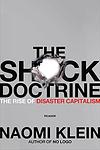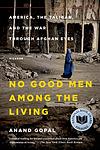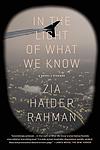The Greatest "Afghanistan, Political" Books of All Time
Click to learn how this list is calculated.
This list represents a comprehensive and trusted collection of the greatest books. Developed through a specialized algorithm, it brings together 300 'best of' book lists to form a definitive guide to the world's most acclaimed books. For those interested in how these books are chosen, additional details can be found on the rankings page.
Genres
The "Political" category of books encompasses works that explore the theory, practice, and history of government and politics. These books may cover topics such as political ideologies, political systems, political institutions, political movements, and political leaders. They may also examine the relationship between politics and other areas of society, such as economics, culture, and international relations. Political books can be both informative and thought-provoking, offering readers insights into the complexities of the political world and the challenges of governing in a democratic society.
Countries
Date Range
Reading Statistics
Click the button below to see how many of these books you've read!
Download
If you're interested in downloading this list as a CSV file for use in a spreadsheet application, you can easily do so by clicking the button below. Please note that to ensure a manageable file size and faster download, the CSV will include details for only the first 500 books.
Download-
1. The Looming Tower by Lawrence Wright
"The Looming Tower" is a comprehensive historical examination of the events leading up to the 9/11 terrorist attacks on the United States. It delves into the origins of Al-Qaeda, the rise of Osama bin Laden, and the failure of U.S. intelligence agencies to prevent the attacks. The narrative is extensively researched and provides a detailed account of Islamic fundamentalism, the complex politics of the Middle East, and the role of the United States in the region. The book also explores the personal stories of key figures on both sides of the conflict.
-
2. The Bookseller of Kabul by Asne Seierstad
This book provides an intimate and eye-opening look into the everyday life of an Afghan family. The narrative follows a bookseller in Kabul, who despite the oppressive Taliban regime, courageously continues his trade. The story delves into his family dynamics, the struggles of his two wives, his children's lives, and the societal norms and customs they navigate. It paints a vivid picture of life in Afghanistan, exploring the themes of love, courage, resilience, and the power of literature.
-
3. The Shock Doctrine: The Rise of Disaster Capitalism by Naomi Klein
This book explores the concept of "disaster capitalism", the idea that global capitalism thrives on disaster and chaos. The author argues that free market policies are often pushed through while countries are reeling from wars, natural disasters, or economic crises. She provides a historical analysis of these events, from Chile in the 1970s, to Russia in the 1990s, to the war in Iraq, demonstrating how governments and corporations exploit these periods of shock to implement economic reforms that would otherwise be rejected.
-
4. The Warrior's Honor: Ethnic War and the Modern Conscience by Michael Ignatieff
The book explores the moral and ethical challenges faced by modern societies when confronted with ethnic conflicts and wars. It delves into the complexities of humanitarian intervention, the role of the media in shaping public perception, and the struggle to reconcile the principles of human rights with the brutal realities of ethnic violence. Through a series of case studies and philosophical reflections, the author examines the tension between the universal claims of morality and the particular loyalties of kinship and nationality, questioning the capacity of moral conscience to mediate in conflicts where deep-seated cultural and ethnic animosities are at play.
-
5. Blowback by Brad Thor
In "Blowback," readers are plunged into a thrilling narrative where the protagonist, a skilled counterterrorism operative, is tasked with preventing a catastrophic attack on the United States. The plot thickens when he discovers that an ancient weapon of mass destruction, thought to be a myth, has been rediscovered and is in the hands of a dangerous enemy. As the clock ticks down, the operative must navigate a treacherous path of deceit and betrayal, racing across the globe to unravel historical secrets and stop the impending doom that threatens to unleash chaos on a massive scale.
-
6. No Good Men Among The Living by Anand Gopal
The book provides a gripping and detailed account of the Afghan War through the eyes of three individuals: a Taliban commander, a warlord, and a housewife. By tracing their intertwined lives, the narrative reveals the profound misunderstandings and often tragic consequences of the U.S. involvement in Afghanistan. The author, through extensive on-the-ground reporting, uncovers how initial American successes were squandered, leading to the resurgence of the Taliban and a perpetuation of conflict. The work challenges the conventional narratives of the war and exposes the impact of foreign intervention on ordinary Afghan lives.
-
7. In The Light Of What We Know by Zia Haider Rahman
The book is a complex and thought-provoking exploration of friendship, identity, and the search for meaning. It follows the intertwined lives of two men, one a privileged banker and the other a mathematician from Bangladesh, as they navigate personal and global crises. Through their conversations and reflections, the book delves into themes of race, class, war, and the nature of knowledge, challenging readers to question their own assumptions and beliefs.
-
8. Directorate S: The C.I.A. and America's Secret Wars in Afghanistan and Pakistan by Steve Coll
This book provides an in-depth examination of the covert wars conducted by the CIA in Afghanistan and Pakistan, also known as "Directorate S." It offers an analysis of the complex relationships between the CIA, the military, and foreign governments, as well as the political and cultural challenges that shaped the war. The book also explores the consequences of these secret wars, including the rise of the Taliban and Al-Qaeda, and the impact on U.S. foreign policy.
-
9. Ghost Wars by Steve Coll
"Ghost Wars" is an in-depth exploration of the complex history of Afghanistan from the Soviet invasion in 1979 to just before the terrorist attacks of September 11, 2001. The book provides an intricate account of the CIA's role and America's foreign policy in Afghanistan, the rise of the Taliban, and the emergence of Osama Bin Laden. It also details the numerous missed opportunities to capture or kill Bin Laden, and the failure to prevent the 9/11 attacks.
Reading Statistics
Click the button below to see how many of these books you've read!
Download
If you're interested in downloading this list as a CSV file for use in a spreadsheet application, you can easily do so by clicking the button below. Please note that to ensure a manageable file size and faster download, the CSV will include details for only the first 500 books.
Download







